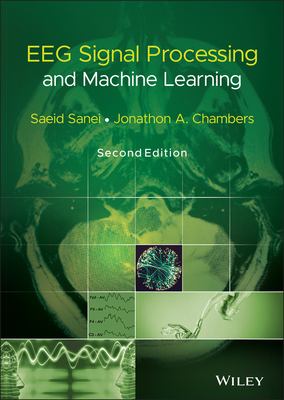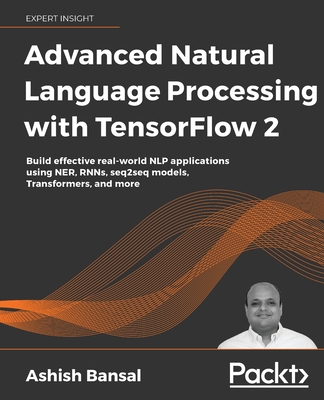Heterogeneous Facial Analysis and Synthesis
暫譯: 異質臉部分析與合成
Li, Yi, Huang, Huaibo, He, Ran
- 出版商: Springer
- 出版日期: 2020-06-25
- 售價: $2,430
- 貴賓價: 9.8 折 $2,381
- 語言: 英文
- 頁數: 97
- 裝訂: Quality Paper - also called trade paper
- ISBN: 9811391475
- ISBN-13: 9789811391477
-
相關分類:
DeepLearning
海外代購書籍(需單獨結帳)
商品描述
This book presents a comprehensive review of heterogeneous face analysis and synthesis, ranging from the theoretical and technical foundations to various hot and emerging applications, such as cosmetic transfer, cross-spectral hallucination and face rotation. Deep generative models have been at the forefront of research on artificial intelligence in recent years and have enhanced many heterogeneous face analysis tasks. Not only has there been a constantly growing flow of related research papers, but there have also been substantial advances in real-world applications. Bringing these together, this book describes both the fundamentals and applications of heterogeneous face analysis and synthesis. Moreover, it discusses the strengths and weaknesses of related methods and outlines future trends.
Offering a rich blend of theory and practice, the book represents a valuable resource for students, researchers and practitioners who need to construct face analysis systems with deep generative networks.
商品描述(中文翻譯)
本書全面回顧了異質臉部分析與合成,涵蓋了從理論和技術基礎到各種熱門和新興應用的內容,例如化妝轉移、跨光譜幻覺和臉部旋轉。深度生成模型在近年來的人工智慧研究中處於前沿,並增強了許多異質臉部分析任務。不僅相關研究論文的流量持續增長,實際應用也取得了顯著進展。本書將這些內容整合在一起,描述了異質臉部分析與合成的基本原理和應用。此外,還討論了相關方法的優缺點並概述了未來的趨勢。
本書提供了理論與實踐的豐富結合,對於需要構建基於深度生成網絡的臉部分析系統的學生、研究人員和實務工作者來說,是一個寶貴的資源。
作者簡介
Yi Li received her B.E. degree in Electronic and Information Engineering from Dalian University of Technology in 2014, and her M.E. degree in Information and Communication Engineering from the same university in 2017. She is currently a Ph.D. student at the Center for Research on Intelligent Perception and Computing (CRIPAC), National Laboratory of Pattern Recognition (NLPR), CASIA, Beijing, China. Her research interests include computer vision and pattern recognition.
Huaibo Huang received his B.E. degree in Measurement and Control Technology and Instruments from Xi'an Jiaotong University in 2012, and his M.E. degree in Optical Engineering from Beihang University in 2016. He is currently a Ph.D. student at the Center for Research on Intelligent Perception and Computing (CRIPAC), National Laboratory of Pattern Recognition (NLPR), CASIA, Beijing, China. His research interests include computer vision and pattern recognition.
Ran He received his B.E. degree in Computer Science and his M.S. degree in Computer Science from Dalian University of Technology, and his Ph.D. degree in Pattern Recognition and Intelligent Systems from the Institute of Automation, Chinese Academy of Sciences in 2001, 2004 and 2009, respectively. In September 2010, Dr. He joined the NLPR, where he is currently a Professor. He is a member of the IEEE (Institute of Electrical and Electronics Engineers) and serves as an Associate Editor of the journal Neurocomputing (Elsevier), and on the program committees of several conferences. His research interests chiefly focus on information theoretic learning, pattern recognition, and computer vision. He has published over 140 conference papers and journal articles in highly ranked international journals, such as IEEE Transactions on Pattern Analysis and Machine Intelligence (TPAMI), IEEE Transactions on Image Processing (TIP), and Neural Computation (NECO).
Tieniu Tan received his B.Sc. degree in Electronic Engineering from Xi'an Jiaotong University, China, in 1984, and his M.Sc. and Ph.D. degrees in Electronic Engineering from the Imperial College London, UK, in 1986 and 1989, respectively. In October 1989, he joined the Computational Vision Group in the Department of Computer Science, University of Reading, UK, where he worked as a Research Fellow, Senior Research Fellow and Lecturer. In January 1998, he returned to China to join the National Laboratory of Pattern Recognition (NLPR), where he is currently a Professor. He is the former director (1998-2013) of the NLPR and Center for Research on Intelligent Perception and Computing (CRIPAC), and was Director General of the Institute (2000-2007). He has also served as Vice President of the Chinese Academy of Sciences (2015-2016). His current research interests include biometrics, image and video understanding, and information content security.
Dr. Tan is a Fellow of the CAS, TWAS (The World Academy of Sciences for the advancement of science in developing countries), IEEE and IAPR, and an International Fellow of the UK Royal Academy of Engineering. He has served as an Associate Editor or member of the editorial board of several leading international journals, including IEEE Transactions on Pattern Analysis and Machine Intelligence (PAMI), IEEE Transactions on Automation Science and Engineering, Pattern Recognition Letters, and Image and Vision Computing.
作者簡介(中文翻譯)
Yi Li於2014年獲得大連理工大學電子與信息工程學士學位,並於2017年獲得該校信息與通信工程碩士學位。她目前是中國北京中國科學院自動化研究所模式識別國家實驗室(NLPR)智能感知與計算研究中心(CRIPAC)的博士生。她的研究興趣包括計算機視覺和模式識別。
Huaibo Huang於2012年獲得西安交通大學測控技術與儀器學士學位,並於2016年獲得北京航空航天大學光學工程碩士學位。他目前是中國北京中國科學院自動化研究所模式識別國家實驗室(NLPR)智能感知與計算研究中心(CRIPAC)的博士生。其研究興趣包括計算機視覺和模式識別。
Ran He於2001年、2004年和2009年分別獲得大連理工大學計算機科學學士學位、碩士學位及中國科學院自動化研究所模式識別與智能系統博士學位。2010年9月,何然博士加入NLPR,目前擔任教授。他是IEEE(電氣和電子工程師學會)會員,並擔任期刊Neurocomputing(Elsevier)的副編輯,以及多個會議的程序委員會成員。他的研究興趣主要集中在信息理論學習、模式識別和計算機視覺。他在IEEE Transactions on Pattern Analysis and Machine Intelligence (TPAMI)、IEEE Transactions on Image Processing (TIP)和Neural Computation (NECO)等高排名國際期刊上發表了超過140篇會議論文和期刊文章。
Tieniu Tan於1984年獲得西安交通大學電子工程學士學位,並於1986年和1989年分別獲得英國倫敦帝國學院電子工程碩士和博士學位。1989年10月,他加入英國雷丁大學計算機科學系的計算視覺組,擔任研究員、高級研究員和講師。1998年1月,他返回中國,加入模式識別國家實驗室(NLPR),目前擔任教授。他曾擔任NLPR和智能感知與計算研究中心(CRIPAC)的主任(1998-2013),並於2000-2007年擔任該所所長。他還曾擔任中國科學院副院長(2015-2016)。他目前的研究興趣包括生物識別、圖像和視頻理解以及信息內容安全。
Tan博士是中國科學院(CAS)、發展中國家科學促進會(TWAS)、IEEE和IAPR的院士,以及英國皇家工程院的國際院士。他曾擔任多個領先國際期刊的副編輯或編輯委員會成員,包括IEEE Transactions on Pattern Analysis and Machine Intelligence (PAMI)、IEEE Transactions on Automation Science and Engineering、Pattern Recognition Letters和Image and Vision Computing。












